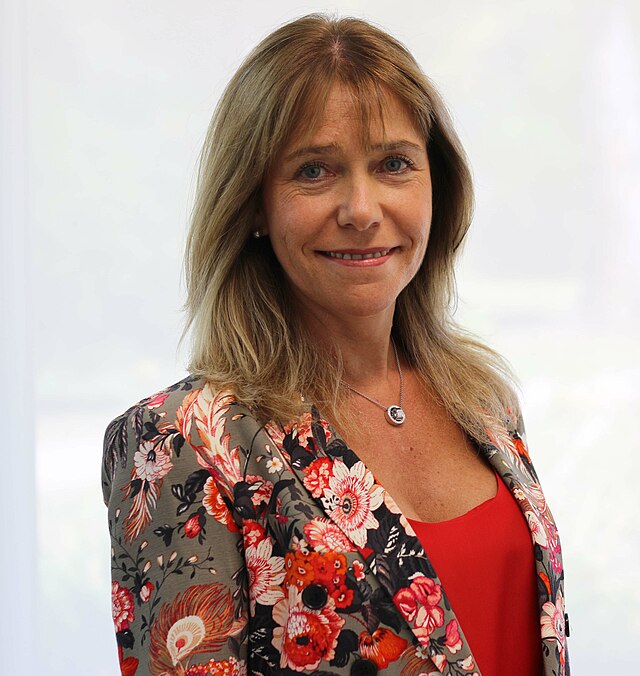WMO Secretary-General to Strengthen Public-Private Collaboration on Climate Adaptation and Early Warnings at Davos
Focus on Early Warnings for All Initiative and Private Sector Engagement Strategy to Combat Escalating Environmental Risks and Climate Impacts.

WMO Secretary-General Celeste Saulo will take part in the World Economic Forum (WEF) in Davos, where she plans to engage with public and private sector leaders to forge new collaborations aimed at tackling escalating environmental risks. These risks, according to the WEF's Global Risks Report, are now the greatest long-term concern, with their impacts projected to worsen over the next decade.
With the WEF’s theme this year focusing on "Collaboration for the Intelligent Age," Saulo will highlight the role of technological advancements such as Artificial Intelligence, cloud computing, and satellite data in enhancing weather forecasting and climate monitoring. However, she will also stress the importance of addressing the urgent consequences of extreme weather and climate change, particularly after 2024 was recorded as the warmest year in history, continuing a trend of the ten hottest years on record.
Environmental concerns, particularly extreme weather, biodiversity loss, and the disruption of Earth's systems, are among the most pressing challenges highlighted in the WEF's report. These challenges underline the necessity for long-term strategies to protect ecosystems, secure resources, and mitigate the impacts of climate change.
Strengthening the Private Sector’s Role in Early Warning Systems
One of the core initiatives Saulo will advocate for is the Early Warnings for All initiative, launched by UN Secretary-General António Guterres. This initiative aims to provide life-saving early warning systems to everyone on Earth, regardless of location, ensuring that communities are better prepared for climate-related disasters. In addition to governmental cooperation, Saulo will seek to catalyze increased engagement from the private sector to support this initiative. She notes that investment in early warning systems can offer significant economic returns, with every $1 invested yielding $9 in benefits globally, and up to $19 in Africa.
“The climate crisis demands a collective, whole-of-society approach, reaching across sectors and disciplines,” said Saulo. “Broadening the tent is not just about involving more actors; it’s about empowering everyone to champion Early Warning Systems as a core priority.”
The Private Sector Engagement Strategy within the Early Warnings for All initiative seeks to harness the resources and expertise of businesses to build sustainable public early warning systems. Companies, ranging from meteorological equipment manufacturers to tech giants like Microsoft, are already playing crucial roles. However, Saulo emphasizes the untapped potential of engaging more sectors, including mobile network operators, the insurance industry, and media companies, to improve the reach and reliability of warning systems.
The Private Sector Engagement Strategy also aims to make clear the business case for investing in early warning systems, emphasizing how these investments can unlock economic potential, improve business resilience, and even reduce risks to income statements. Executives from a variety of industries are increasingly recognizing that better weather insights can help reduce costs, enhance revenues, and support corporate social responsibility.
A Global Commitment to Climate Resilience
As part of her participation at the WEF, Saulo will stress the importance of both public and private sectors working together to ensure the future resilience of communities and businesses. The WMO is also advocating for investment in hydromet services and early warning systems, which Saulo argues will be crucial in preparing for the growing risks posed by extreme weather and climate change. She is hopeful that this will be a central message in Davos, as the world faces unprecedented challenges from climate-related disruptions.
Saulo’s focus will also include the need for national policy frameworks that foster public-private engagement (PPE), enabling the private sector to contribute to climate resilience without compromising the public service’s role. By doing so, Saulo believes societies can mitigate the risks of climate change while generating development co-benefits and unlocking economic opportunities for businesses and communities.
As environmental risks continue to rise, the call for immediate action is clear: a strategic, collaborative, and forward-thinking approach that integrates technological innovation and business investment into comprehensive early warning and climate adaptation systems is crucial for safeguarding the planet and its people.
- READ MORE ON:
- Celeste Saulo
- World Economic Forum
- Early Warnings for All










